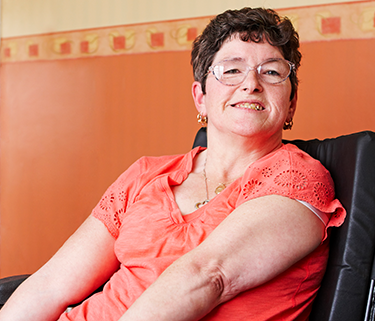Shut Out Again: COVID-19 Relief Package Again Excludes Needs of People With Disabilities, Families, Service Providers
After months of hardship and danger from the COVID-19 pandemic, and relentless advocacy by The Arc and advocates across the country, last night Congress passed a COVID-19 relief package without critical funding for people with disabilities to access the services and supports necessary for a life in the community.
As COVID-19 continues to spread nationwide, people with intellectual and developmental disabilities are struggling to access the services they need to continue to live in the community, and their families struggle with balancing work and caregiving responsibilities. Congress should have allocated desperately needed funds to support home and community-based services but they fell short. They also failed to provide funding for personal protective equipment (PPE) and resources for the workforce that has supported people with disabilities tirelessly throughout this pandemic.
Congress did authorize a second round of smaller stimulus payments, but once again left out many people with disabilities – those who are defined by the IRS to be “adult dependents.” This group was inexplicably cast aside despite bipartisan support for including them.
Congress extended tax credits available for business to cover paid leave, but eliminated rules about when business must provide leave and did not extend the tax credits to cover all caregivers as the pandemic continues. Congress also failed to provide a solution to a COVID-related overpayment issue with Social Security benefits. The needs of people with disabilities, their families, and the workforce that supports them were excluded to honor an arbitrary bottom line.
“It’s unconscionable that Congress ignored the dire needs of people with disabilities, their support staff, and families as this pandemic rages across the country. For months, our leaders have known the consequences of their inaction. People with disabilities are getting infected at higher rates. Support staff are putting their lives on the line day and day out with the protection they need. And families are struggling with it all. Yet in the waning days of 2020, they have shut us out in the cold in COVID-19 relief legislation,” said Peter Berns, CEO, The Arc.
Home and community-based services, or HCBS, make life in the community possible for millions of people with disabilities who often need help with things like eating, dressing, personal hygiene, and managing health care or finances. As COVID-19 spread in congregate settings out of the community, like nursing homes and institutions, HCBS became even more important for health, safety, and independence. Without this critical federal emergency funding, as state budgets continue to take hits due to the pandemic, the HCBS systems will be hit hard.
Through The Arc, almost 150,000 calls and emails have flooded Congress in recent months to demand action for funding for these services, along with the PPE needed by staff to safely deliver these services to people with disabilities. Chapters of The Arc across the country have been scrambling throughout the pandemic to access PPE and other medical supplies. They are in need of resources to cover these costs as well as the funding to pay their direct support professionals fairly for the vital work they do.
“This is not hyperbole – this is life and death for people with disabilities and their support systems. Before, during, and someday after the pandemic, a life in the community is vital for people with disabilities. Congress turned its back on desperately needed funds to support these services, protect the staff doing the work, and pay them for the risks they are taking in this public health crisis,” said Berns.
















